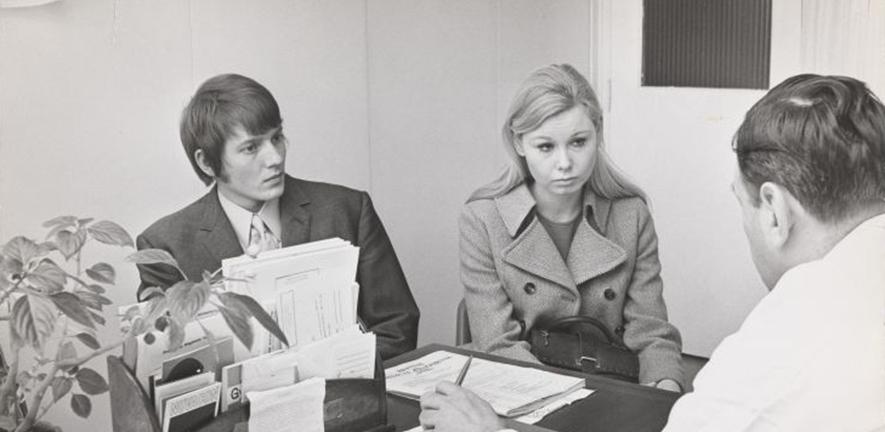
Submitted by Christina Rozeik on Mon, 21/02/2022 - 16:42
A new article by historian and Cambridge Reproduction member Dr Caroline Rusterholz argues that young people behaving responsibly in the 1960s helped to defeat fierce opposition to the UK’s first sexual health clinics. Her research challenges assumptions about the sexual revolution of the ‘Swinging Sixties’ and sheds new light on the controversial origins of a sexual health service which is now largely taken for granted.
The study, published in the Journal of British Studies, is the first to examine the history of the Brook Advisory Centres (BAC), officially founded by Helen Brook in 1964, and still a key player in sexual health. By looking for the first time at the contents of the Centre’s Annual Reports and memoranda – now archived in Wellcome Library – this research provides important new information about how the scheme came into being and survived initial opposition.
Rusterholz says:
Helen Brook didn’t just want to reduce illegal abortions. This archive shows just how determined she was to help young people avoid unwanted pregnancies at a time when increasing numbers of young girls, in particular, were entering higher education. She saw knowledge about contraception as a crucial way to maintain professional opportunities for women.
The study sheds new light on Helen Brook’s pioneering role in encouraging young men to take greater responsibility for their sexual behaviour, a persistent challenge to this day. Annual reports and media articles covering the work of the centres emphasised the involvement of young men who accompanied their girlfriends, booked them appointments, or even attended the centre alone.
By 1968, half of the clients who attended the Birmingham centre came as couples. And in 1971, it reported that its patients ‘were serious responsible young citizens, faithful to one partner but living in an age when social patterns change drastically’.
The statistics compiled by BAC reflected this vision of responsibility. Its clientele increased steadily from 1964 and in both cities, the vast majority of clients were in steady relationships (or claimed to be). Roughly one-third were students and in 1967, less than 10% of London patients were aged 16–17, the majority being 20–21, while in Birmingham, the majority of patients were 19–21.
Rusterholz says:
In their early years, Brook Advisory Centres functioned as places where responsible behaviours could be taught, and the clinic’s statistics emphasised that the majority of clients were receptive. All of this challenged a powerful public narrative in Sixties Britain which presented young people as promiscuous and irresponsible.
A longer version of this article appeared originally on the University's main news page.
Image: A couple visiting a Brook Advisory Centre in the 1960s. Image courtesy of Brook
Reference
Caroline Rusterholz, ‘Youth sexuality, responsibility and the opening of the Brook Advisory Centre in London and Birmingham in the 1960s’, Journal of British Studies (2022), first view. doi: 10.1017/jbr.2021.188.

